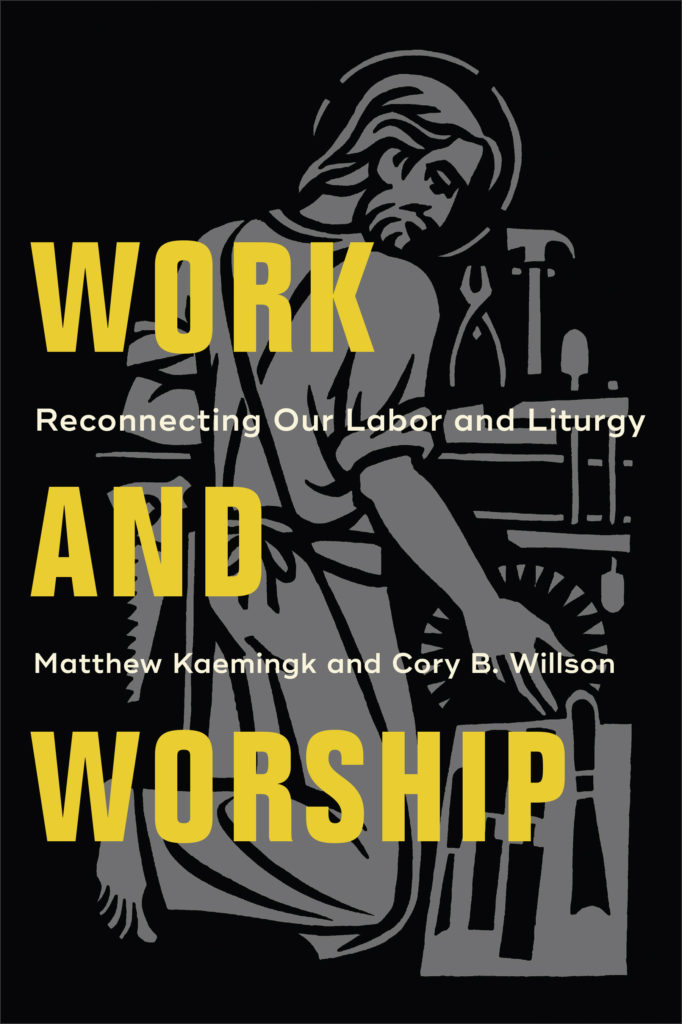The Psalms Give a Voice to Workers Laboring in a Fallen World
Evening, morning and noon
I cry out in distress,
and he hears my voice.
—Psalm 55:17
Plowmen have plowed my back
and made their furrows long.
—Psalm 129:3
I will come to your temple with burnt offerings. . . .
Come and hear, all you who fear God;
let me tell you what he has done for me.
—Psalm 66:13, 16
Whenever workers, ancient or modern, enter a sanctuary, they carry with them a wide variety of workplace experiences and emotions. Any given week, diverse workers have a variety of things they need to say to God. Some need to shed tears and some need to shout in praise. Some need to give thanks and some need urgent intervention. The vivid words and images of the psalms enable workers to articulate and offer their working lives to God in profound and transformative ways. Within today’s faith and work movement much is made of carrying the biblical lessons of Sunday into Monday. The psalms enable the opposite. They give the worker an opportunity to carry their raw emotions of Monday into Sunday. The psalms not only describe, but they also demand a two-way dialogue between work and worship, an honest conversation between the street and the sanctuary.
Enjoying this article? Read more from The Biblical Mind.
It is not always easy or natural to speak honestly with God about work. It takes practice, even skill. It is something that needs to be learned. As John Goldingay observes, the psalms assume “that we do not know instinctively how to talk with God but rather need some help knowing how to do so.” The psalms offer workers a vocabulary for use in honest dialogues with God. Here the worker has access to 150 psalms of both lament and praise, confession and thanksgiving, heartfelt petitions and promises. All of these lyrics have the potential to make their way to the lips of a worker on any given Sunday. As Bernhard Anderson writes, “Most of scripture speaks to us while the Psalms speak for us.”

The psalms not only permit workers to express a wide variety of emotions, but they also enable an impressive depth of emotion as well. Nearly every worker comes to a low point in their career, a point at which they can relate to the psalmist’s cry about having fallen into “a pit.” Likewise, nearly every worker experiences moments in which they, in a fit of rage, want to ask God to hurl their coworkers, clients, or overseers into “a pit.” Whether they admit it or not, many workers can identify with the psalms of rage—even the violent ones. Walking through a toxic workplace, workers have little difficulty relating to the psalmist’s cry that they are “surrounded” by “enemies.” At the close of a particularly stressful season, who among us cannot relate to the psalmist’s cry, “My strength is dried up” (Ps 22:15)? Hopeless workers should give thanks that the word “pit” shows up as frequently as it does!
The psalms will not romanticize work in a fallen world. They will not instruct anyone to “whistle while you work.” These songs will tell the raw truth—sometimes in an all-out rage—that work is not what it is supposed to be. Commenting on Psalm 137, Rodney Sadler describes how early African American communities were bound closely to the psalms through their experiences of toil and hardship on plantations. He writes,
The Psalms have been a significant religious resource to the African American community . . . who have suffered the grave indignity of oppression, enslavement, segregation, and second-class citizenry. . . . The visceral nature of the Psalter—a book that grew out of the experiences of a people who themselves were familiar with lamentation and praise amid oppression, dislocation, and community crisis—became a source language for formerly enslaved Africans and African Americans, providing them a means of expressing their angst and anguish in intimate fellowship with their God.
Powerful and privileged workers often struggle to understand and identify with the rage of these lament psalms. Those on the underside of a rapacious economy do not. Sadler suggests that if the privileged would like to understand the rage psalms, they should start by listening to the stories of harassed workers who know a thing or two about workplace injustice. He writes, “Because the sufferings and joys experienced by African Americans and the laments and praises voiced by the ancient psalmists cohere so readily, African American narratives may provide critical insight into the origins of certain psalms, particularly those that emerge from contexts of oppression and exile.”
Here the psalmists’ laments need to be in conversation with the slaves’ cry from Exodus. Oppressed and suffering workers laboring in the fields of Egypt scream out in prayer, and Yahweh responds. The birth of Israel as a nation is located in the cry of a worker’s lament and the response of a liberating God. Learning to lament about work is the beginning of a new life for Israel. It can mark the beginning of a new life for a modern worker as well.
If Exodus assures workers that they can scream out to God about work, Psalms provides workers with the words they are allowed to scream. Therein workers can find a whole battery of vivid language to express their workplace rage—a rage they might not even realize is there. Through these songs a broken-down worker is equipped to cry out, “I have done what is righteous and just; do not leave me to my oppressors” (Ps 119:121). If they must, workers may even find themselves demanding retribution: “Silence my enemies; destroy all my foes” (Ps 143:12); “Send forth lightning and scatter the enemy; shoot your arrows and rout them” (Ps 144:6). In Psalm 109 a merchant is falsely accused in the marketplace. Here the worker asks God for economic retribution:
My God, whom I praise,
do not remain silent,
for people who are wicked and deceitful
have opened their mouths against me. . . .
May a creditor seize all he has;
may strangers plunder the fruits of his labor. (Ps 109:1, 11)
When a worker, ancient or modern, has been unjustly treated in the marketplace, these are the sorts of words they want to say—and often do. The songs of the Psalter do not suppress the worker’s rage. Instead, their candid lyrics put words to workers’ anger and train workers not to shout into the abyss but to carry their vocational rage directly to God.
No doubt, such words of vocational rage can make polite and submissive Christian workers feel awkward. But the psalmists prod them onward and declare that sometimes words of rage need to be voiced. As John Goldingay says, “The Psalms make it possible to say things that are otherwise unsayable.” Worship must not be a time of pretend. If rage needs to be expressed, it needs to be expressed. God already knows the rage is there. Moreover, as J. Clinton McCann insists, “In the face of monstrous evil, the worst possible response is to feel nothing. What must be felt—by the victims and on behalf of the victims—are grief, rage, and outrage. In the absence of these feelings, evil becomes an acceptable commonplace. In other words, to forget is to submit to evil, to wither and die; to remember is to resist, to be faithful, and to live again.” Vocational lament is here a profound act of faith.
This article is excerpted from Work and Worship by Matthew Kaemingk and Cory B. Willson. Baker Academic, a division of Baker Publishing Group, ©2020. Used by permission of Baker Publishing.
Did you enjoy this article? Check out The Biblical Mind podcast.
Image created by Rubner Durais





